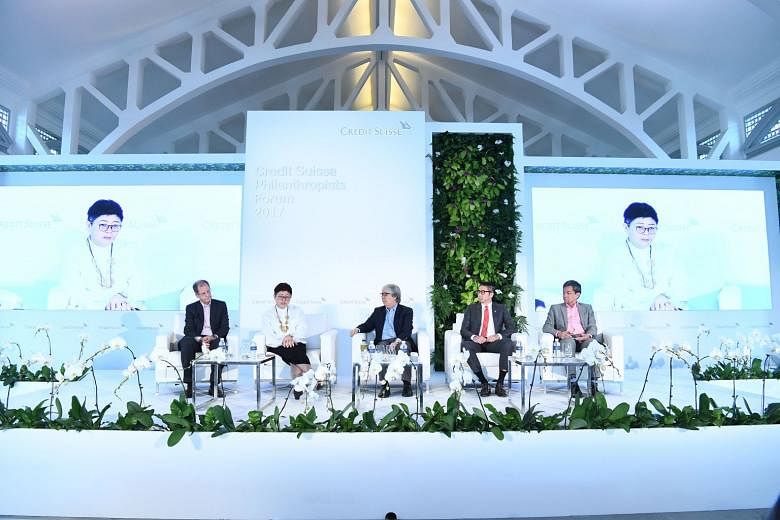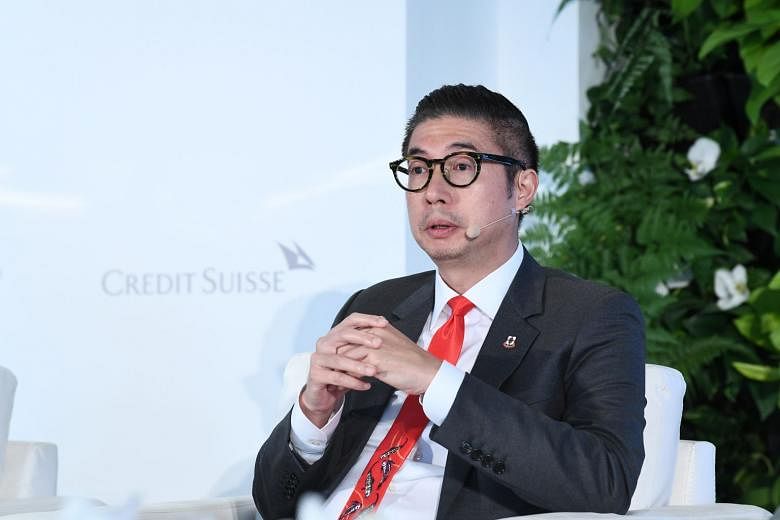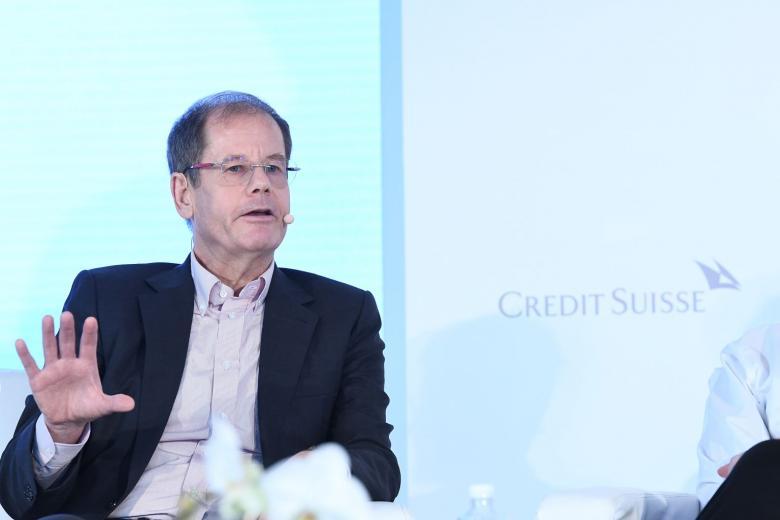Since the 1800s, philanthropy has played a prominent role in the development of the healthcare sector in Singapore, a point Minister for Health Gan Kim Yong highlighted in his speech at the Credit Suisse Philanthropists Forum 2017.
"In Singapore, during the last 50 years of development, philanthropy often played the role in filling critical gaps to meet the health needs of our people, as we developed the public healthcare system," said Mr Gan, who was the guest of honour.
"From as early as the 19th century, Chinese philanthropists and clan associations have set up hospitals and medical institutions to look after the poor and needy in their community.
"These included the Thong Chai Medical Institution, Kwong Wai Shiu Free Hospital and the Chinese Pauper Hospital (now known as Tan Tock Seng Hospital). Our first volunteer community hospital had its beginnings as the St Andrew's Medical Mission in 1913 as a dispensary for women and children. Our first medical school was established in 1905 with the contributions of philanthropists such as Tan Jiak Kim, local merchants and funds raised by the local community."
Mr Gan's theme of healthcare's evolving journey was echoed in the welcome speech by Mr Francesco de Ferrari, Credit Suisse's head of private banking for Asia Pacific and chief executive officer, Southeast Asia and frontier markets, who described the "incredible journey" of hosting the forum for the seventh year.
Held at Clifford Pier on Nov 16, this year's theme was on healthcare giving in Asia. Mr de Ferrari mentioned the work of a speaker at a previous forum when pointing out the need for more "innovative and cost-effective healthcare that is more accessible to a larger population".
He said: "Dr Devi Prasad Shetty of India, the founder of an affordable healthcare chain, the Narayana Hrudayalaya group of hospitals, made heart surgeries affordable in India and also pioneered the world's cheapest comprehensive insurance scheme, which provides healthcare coverage to poor farmers for just 18 rupees (S$0.35)."
Sharing applications
The first panel discussion was moderated by Professor Tommy Koh, chairman of the SymAsia Foundation and ambassador-at-large at the Ministry of Foreign Affairs. The panellists were Ms Anita Fam, vice chairman of the National Council of Social Service; Dr Gerardo Legaspi, director of the Philippine General Hospital; Mr Philip Ma, vice-chairman of Tung Wah Group of Hospitals and director of Tai Sang Land Development; and Mr David Zuellig, a trustee of the Zuellig Family Foundation (ZFF).

On the topic of budgets, Ms Fam talked about the help from leveraged giving and relying on events plus donors.
When asked about his group's focus on the community in Hong Kong, Mr Ma said: "We have 219 service units providing elderly, youth and family rehabilitation, traditional services like temples and funeral parlours, as well as social enterprises. Recently, we have focused on enhancing service effectiveness by introducing innovative technologies, such as an 'anti-wandering vest' for disabled residents and a virtual-reality rehabilitation system.
"We have also put resources into developing endless care services and promoting life and death education, which are traditionally avoided by many Chinese people. To promote social inclusion (and self-reliance) and increase public attention on mental health, the group organises an 'i-Run' every year, where the intellectually disabled under our care are paired up with other runners to participate in a marathon run."
Catering to local needs
Prevailing local context is all-important, Mr Zuellig said when asked about the ZFF's focus on healthcare in rural areas.
"To understand healthcare in the Philippine context, it has to be emphasised that the delivery of healthcare services in the country is devolved by law to the local governments. This is a limitation that has hampered access to even the most basic of healthcare services in poor, geographically isolated municipalities and in resource-limited towns not too far from major cities.
"It is apparent that local governments do not have the capacity to provide adequate healthcare services. Unlike in the central government, some local politicians do not consider healthcare a priority. Budget allocation is constrained, resulting in low rates of vaccinations, poor maternal and infant care, increasing prevalence of non-communicable diseases, et cetera. This is tied to issues of lack of sanitation and clean water supply, outdated medical facilities and a limited number of health personnel.
"The ZFF recognised these concerns some time ago and decided to tackle them from a macro perspective. Governance and leadership, if ingrained in the mindset of local leaders, translate to clearer focus on priorities, more organised implementation of projects and ultimately better outcomes.
"The ZFF Health Change Model that provides training to local mayors, governors and health officers, chose maternal and infant mortality reduction as its primary target. After much success and almost a decade later, the ZFF is now applying its health leadership and governance model to address malnutrition, stunting, tuberculosis and other public health issues."
From the heart
Another panellist, Dr Legaspi, offered an illuminating insight into his experiences. He said the constant search for funding for the paediatric neurosurgical unit at the Philippine General Hospital, which survives on donations, is one of the most challenging issues he faces.
He said: "When a newspaper writer featured our plight in a major daily, I told him not to put my contact number in the article. My thinking was that if people really wanted to help, they would find a way to look for me.
"I got calls on my cellphone two hours after the newspaper hit the stands, with people pledging their donations and all invariably saying, 'Dr Legaspi, you are so difficult to find.' But at the end of that week, we had raised 1.2 million pesos (S$32,000) from donors, enough to keep running the unit for three years.
"In all the years of running this unit, what has really amazed me is that as funds started to get low and seemed to eventually run out, by some stroke of coincidence, or fate maybe, a new donor would come in and augment the fund.
"This has allowed us to do surgery on more than 300 children with craniofacial and neurosurgical problems a year. This is a big leap from what used to be 20 annually.
"The message here is that if the intentions are clearly drawn out and achievable, people will rally to the cause, but you should prove that they can trust you.
"My donors never even asked for any accounting of their assistance."







